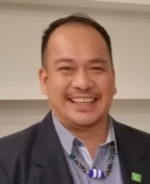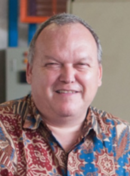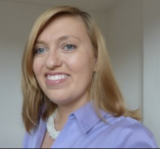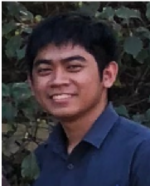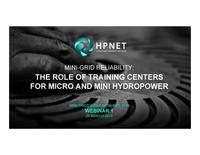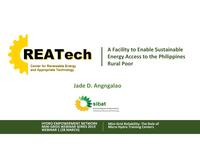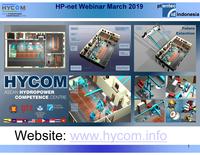|
|
| (56 intermediate revisions by 2 users not shown) |
| Line 1: |
Line 1: |
| | + | '''[[Mini-grid Webinar Series|►Link to Mini-Grid Webinar Series 2017]]''' |
| | + | |
| | {| style="width: 100%" class="FCK__ShowTableBorders" cellspacing="1" cellpadding="1" border="0" | | {| style="width: 100%" class="FCK__ShowTableBorders" cellspacing="1" cellpadding="1" border="0" |
| | |- | | |- |
| | | style="width: 85%; border-bottom: 2px solid rgb(151, 191, 13); vertical-align: bottom; text-align: center" | | | | style="width: 85%; border-bottom: 2px solid rgb(151, 191, 13); vertical-align: bottom; text-align: center" | |
| − | <span style="color: rgb(72,177,69); font-size: 30px">'''Mini-Grids Webinar Series'''</span><br/> | + | <span style="color: rgb(72,177,69); font-size: 30px">'''Mini-Grids Webinar Series 2019'''</span><br/> |
| | | | |
| | |} | | |} |
| | | | |
| − | Renewable energy mini-grids are a widely discussed solution for cost-effective and reliable energy access. However, within the mini-grids dialogue micro and mini hydropower (MHP)<sup>1</sup> is often overlooked, despite the large number of beneficial projects operating globally, particularly in rural regions of Asia, Africa, and Latin America.<br/><span class="mw-customtoggle-PractitionerWorkshop-10November2014" style="font-size:small; font-weight: bold; display:inline-block; float:right; color: blue"><span class="mw-customtoggletext">read more</span></span> | + | The [http://www.hpnet.org/ Hydro Empowerment Network (HPNET)] is a south-south, knowledge exchange and advocacy platform to advance small-scale (<1MW) hydropower. HPNET, in partnership with the [http://wisions.net/ WISIONS of Sustainability Initiative] and [[Main Page|Energypedia]], is conducting a 4-part, quarterly webinar series on mini-grids.<br/> |
| | + | |
| | + | Renewable energy mini-grids are a cost-effective and reliable solution for energy access. Within the technologies available for mini-grids, micro and mini hydropower (MHP)<sup>1</sup><sub> </sub>has added advantages. It's [[Mini-grid Webinar Series|techno-economic characteristics]], such lower levelized cost of electricity, per kilowatt cost, and no need for battery storage, make it economically viable for [[Mini-grid Webinar Series|grid interconnection]] and [[Mini-grid Webinar Series|productive end use applications]]. <span class="mw-customtoggle-PractitionerWorkshop-10November2014" style="font-size:small; font-weight: bold; display:inline-block; float:right; color: blue"><span class="mw-customtoggletext">read more</span></span> |
| | <div id="mw-customcollapsible-PractitionerWorkshop-10November2014" class="mw-collapsible mw-collapsed"> | | <div id="mw-customcollapsible-PractitionerWorkshop-10November2014" class="mw-collapsible mw-collapsed"> |
| − | <br/> | + | <br/>Because MHP hardware can be manufactured locally and maintained by local actors, MHP development imparts local skills and jobs, which can evolve into local MHP enterprises. In addition, MHP strengthens catchment area and watershed protection, in turn increasing the climate resilience of vulnerable communities in hilly regions. |
| | | | |
| − | <br/>Many MHP systems originated as water mills that were upgraded to generate electricity (e.g. Afghanistan, Pakistan, and northern India). Some have transitioned from isolated mini-grids to grid-interconnected systems (e.g. Indonesia and Sri Lanka). As a proven technology with a long track record, micro/mini hydropower is the focus of this webinar series, which will also analyze similarities and differences among the various mini-grid technologies. Each webinar in the series will focus on a distinct and relevant topic, namely '''Technology Differentiation, Grid-Interconnection, and Productive End Use'''.
| + | The number of hydro mini-grids in rural areas of Asia, Africa, and Latin America far exceed other types of mini-grids. As a proven technology with an extensive track record, micro and mini hydropower is the focus in this mini-grid webinar series. The objective of the series is to facilitate exchange among diverse actors advancing small-scale hydro, and promote approaches that lead to long-term success and optimal local benefits. Each of the four webinars will respectively provide insight on MHP ''reliability, sustainability, financing, and planning'' for scalability.<br/> |
| | | | |
| − | The objectives of this webinar series are to strengthen the sector by:<br/>
| + | ''[1] In this context, micro hydropower refers to <100kW, and mini hydropower refers to 100 - 1000 kW (or 1MW).'' |
| − | | |
| − | *facilitating exchange among field practitioners, regional and international experts<br/>
| |
| − | *creating awareness on up-to-date developments, barriers and opportunities.<br/>
| |
| − | | |
| − | <br/>
| |
| − | | |
| − | [1] In this context, micro hydropower refers to <100kW, and mini hydropower refers to 100 - 1000 kW (or 1MW).<br/> | |
| | </div> | | </div> |
| − | <br/>
| + | {{template:Tabs-4 |
| | + | |Mini-Grid_Webinar_Series_2019|1st Webinar |
| | + | |Mini-Grid Webinar Series 2019 - 2nd Webinar|2nd Webinar |
| | + | |Mini-Grid_Webinar_Series_2019_-_3rd_Webinar|3rd Webinar |
| | + | |Mini-Grid_Webinar_Series_2019_-_4th_Webinar|4th Webinar |
| | + | }} |
| | | | |
| − | = 1st Webinar: Technology Differentiation =
| + | <p style="text-align: center">'''<span style="color: rgb(72,177,69); font-size: 15px">Mini-Grid Reliability: The Role of Training Centers for Micro/Mini Hydropower</span>'''</p><p style="text-align: center"><font color="#48b145"><span style="font-size: 15px;">'''Webinar Recording'''</span></font></p> |
| − | <p style="text-align: center">'''<span style="color: rgb(72,177,69); font-size: 15px">Webinar: Why mini-grid technologies -- PV, biomass, diesel, micro/mini hydro, wind, and hybrid systems -- need to be differentiated.</span>'''</p><p style="text-align: center"><font color="#48b145"><span style="font-size: 15px;">'''Webinar Recording'''</span></font></p><br/> | + | {{#widget:YouTube|id=aWmYQ0M5ngc|height=400|width=600}} |
| − | {{#widget:YouTube|id=Yc9OLiGW52I|height=300|width=600}} | |
| | | | |
| − | “Mini-grids” have become increasingly popular in recent years because of:
| + | Micro and mini hydropower (MHP) implementation involves technical expertise in hydrology, civil works, electro-mechanical, electrical, and electronics. Thanks to the pioneers of knowledge transfer for small-scale hydropower, e.g. the Intermediate Technology Development Group (ITDG), Skat Foundation, HydroNet, and others, comprehensive and frequent training was made available in the 1990s to practitioners in the global south. While such training is rare in the present-day scenario, the earlier efforts led to the creation of local experts who have since established local training centers. The Southeast Asia region particularly benefits from micro hydropower training centers. |
| | | | |
| − | *the enormous cost of grid extension in rural areas as well as
| + | This webinar features the following training centers that provide local capacity building for the development, operation, and maintenance of community-based micro hydro projects in Indonesia, Malaysia, and the Philippines. |
| − | *the limitations of household systems (e.g. solar home systems).
| + | <span class="mw-customtoggle-PractitionerWorkshop" style="font-size:small; font-weight: bold; display:inline-block; float:right; color: blue"><span class="mw-customtoggletext">read more</span></span> |
| | + | <div id="mw-customcollapsible-PractitionerWorkshop" class="mw-collapsible mw-collapsed"> |
| | | | |
| − | Often mini-grids based on different energy sources are simply lumped together when it comes to project and program design, calls for proposals, and in legal and regulatory frameworks. However, all mini-grids are not the same. '''This webinar will highlight the important technical and non-technical features, as well as pros and cons of different technologies to create awareness on the need for differentiation of mini-grid systems.'''
| + | * [http://createborneo.org/about-us/ Tonibung Center for Renewable Energy and Appropriate Technology (CREATE), Malaysia] |
| | | | |
| − | <span class="mw-customtoggle-PractitionerWorkshop" style="font-size:small; font-weight: bold; display:inline-block; float:right; color: blue"><span class="mw-customtoggletext">read more</span></span>
| + | *[https://energypedia.info/wiki/ASEAN_Hydropower_Competence_Centre ASEAN Hydropower Competence Centre (HYCOM), Indonesia] |
| − | <div id="mw-customcollapsible-PractitionerWorkshop" class="mw-collapsible mw-collapsed">
| |
| − | <br/>
| |
| | | | |
| − | The main objectives of the webinar are to provide:<br/>
| + | *[https://sibat-inc.org/renewable-energy-and-appropriate-technology/createch/ SIBAT Center for RE and Appropriate Technology (CREATech), Philippines] |
| | | | |
| − | *an '''impartial assessment''' of different RE technologies for electricity generation in mini grids based on facts and figures and experience from different countries<br/>
| + | The founders or coordinators of the centers present the motivation, concept, and evolution of their centers. They explain the training facilities, types of training, the center’s sustainability, and the impact the centers have had on the reliability of micro hydropower projects. |
| − | *an '''overview and framework for comparison''' (pros, cons, business models, ranges for specific cost per kW, generation cost per kWh, cost drivers, scalability, variability of the resource and related storage requirements etc.)<br/>
| |
| − | *'''key points to be considered''' when designing rural electrification programs with different RE technologies. <br/>
| |
| | | | |
| − | This webinar on mini-grid technologies is the first in a series of three webinars on mini-grids. Stay tuned for our upcoming webinars -- '''Grid Interconnection''' (June 2017) and '''Productive End Use''' (July 2017).<br/>
| + | Presentations are followed by a Question/Answer session open to all participants. |
| | </div> | | </div> |
| | + | |
| | == Download the Presentations == | | == Download the Presentations == |
| | | | |
| | {| style="width:100%;" | | {| style="width:100%;" |
| | |- | | |- |
| − | | [[File:Presentation Bikash.pdf|thumb|200px|Micro/Mini Hydro Mini-Grids_Bikash_Pandey|link=https://energypedia.info/images/8/83/Presentation_Bikash.pdf]] | + | | style="width: 200px;" | [[File:HPNET Webinar-1 Opening-Discussant-Closing Slides 29MARCH2019.pdf|thumb|left|200px|HPNET|link=https://energypedia.info/images/d/d6/HPNET_Webinar-1_Opening-Discussant-Closing_Slides_29MARCH2019.pdf]] |
| − | | [[File:Vallvé Presentation.pdf|thumb|200px|Solar PV and Hybrid Mini-Grids_Xavier_Vallvé and Pol_Arranz|link=https://energypedia.info/images/e/ea/Vallv%C3%A9_Presentation.pdf]] | + | | style="width: 200px;" | [[File:Sibat CREATech PPt presentation for HPNet Webinar 28MARCH2019 REV A.pdf|thumb|left|200px|Jade Angngalao SIBAT|link=https://energypedia.info/images/4/4d/Sibat_CREATech_PPt_presentation_for_HPNet_Webinar_28MARCH2019_REV_A.pdf]] |
| − | | [[File:Mini-grid Technology Comparison.pdf|thumb|200px|Mini-grid Technology Comparison|link=https://energypedia.info/images/a/ad/Mini-grid_Technology_Comparison.pdf]] | + | | style="width: 200px;" | [[File:HYCOM GerhardFischer HPNET Webinar 28MAR2019.pdf|thumb|left|200px|Gerhard Fischer HYCOM|link=https://energypedia.info/images/9/94/HYCOM_GerhardFischer_HPNET_Webinar_28MAR2019.pdf]] |
| | |} | | |} |
| − |
| |
| − | == Q&A During the Webinar ==
| |
| − |
| |
| − | *[[Mini-grid Webinar Series - Q&A|List of all questions and answers presented during the webinar]]
| |
| | | | |
| | == Speakers == | | == Speakers == |
| | | | |
| − | {| style="width:100%;" | + | {| style="width:100%" |
| | |- | | |- |
| − | | style="width: 176px" | [[File:Picture Bikash Pandey.jpg|left|150px|alt=Picture Bikash Pandey.jpg|link=Mini-grid Webinar Series]] | + | | style="width: 176px" | [[File:Webinar banie.png|left|150px|alt=Webinar banie.png|link=]] |
| | | style="width: 566px" | | | | style="width: 566px" | |
| − | '''Bikash Pandey''' is Director of Innovations for the Clean Energy, Environment and Water group at Winrock International. Pandey’s work experience encompasses 20 years in policy review, design and implementation of a range of clean/renewable energy projects in Africa, Latin America and Asia. A technical specialist in micro- and mini-hydropower systems, he has designed and implemented numerous community-based electrification, clean transportation projects, small-scale mini-grids, and home energy systems. He has extensive experience in developing small-scale renewable energy projects as activities under the Clean Development Mechanism. He also brings experience encouraging policy change within governments, bilateral and multilateral donors to support clean energy. He holds a master’s in energy and resources from the University of California at Berkeley, and a bachelor’s in electrical engineering from MIT. | + | '''HON. ADRIAN BANIE LASIMBANG'''<br/>In 2018, Hon. Adrian Banie Lasimbang became a senator for the national government of Malaysia, representing the state of Sabah. With extensive experience in participatory mapping, conducting community awareness workshops, enrichment planting, gravity water supply systems, and designing community-based micro-hydro systems, his work centers on improving the socio-economic conditions of rural indigenous communities in Sabah and Sarawak. He has been the Executive Director of TONIBUNG, a local NGO promoting localized renewable energy solutions, including CREATE Borneo, a village-based workshop and training facility, educating the next generation of indigenous engineers in renewable energy technologies. In 2004, Senator Lasimbang was awarded the Seacology Prize for Indigenous Conservationist of the year for protecting watershed areas and improving livelihoods in rural indigenous communities in Borneo. In both 2007 and 2008 he received the Outstanding Young Person Sabah (TOYPS) award for his work integrating natural resource management and rural indigenous communities. He also runs Penampang Renewable Energy, a renewable energy consultancy company. He is a technical advisor for Indigenous Peoples Network of Malaysia (JOAS). |
| | | | |
| | |- | | |- |
| Line 72: |
Line 67: |
| | |- | | |- |
| | | style="width: 176px" | | | | style="width: 176px" | |
| − | [[File:Picture Xavier.jpg|left|150px|alt=Picture Xavier.jpg|link=Mini-grid Webinar Series]] | + | [[File:Webinar jade.png|left|130px|alt=Webinar jade.png|link=]] |
| − | | |
| − | | style="width: 566px" |
| |
| − | '''Xavier Vallvé '''holds engineering and Master’s degrees from the University of Waterloo in Canada and is co-founder and director of the engineering and consultancy firm Trama TecnoAmbiental (TTA) in Barcelona, Spain. He has more than 25 years of experience in renewable energy rural electrification and distributed generation projects, autonomous as well as grid tied, RE hybrid technology for islands and isolated villages. This involves complementary interdisciplinary activities in economic, social and management aspects as well as engineering in RE generation and storage. He has been project director or lead consultant for private and government clients and also for projects by UNDP, UNOPS, UNIDO, UNEP, AECID, IDB, WB, EC, IRENA and other agencies. He is director and lecturer of the Master degree “Master en Ingeniería y Gestión de las Energías Renovables” at IL3 (University of Barcelona).
| |
| − | | |
| − | |-
| |
| − | | style="width: 176px" |
| |
| − | | style="width: 566px" |
| |
| − | |-
| |
| − | | style="width: 176px" colspan="2" |
| |
| − | == Additional Resource Person ==
| |
| − | | |
| − | |-
| |
| − | | style="width: 176px" |
| |
| − | [[File:Picture Pol.png|left|120px|alt=Picture Pol.png|link=Mini-grid Webinar Series]]
| |
| − | | |
| − | | style="width: 566px" |
| |
| − | '''Pol Arranz-Piera''' has over 17 years experience in renewable energy engineering and consultancy projects. Since 2002 he has been working for Trama TecnoAmbiental, where he currently serves as Projects Director, dealing with projects in the field of rural electrification. He also collaborates as an Associate Researcher at the Technical University of Catalonia (UPC). His academic work focuses on the development of distributed energy generation planning methodologies, supply chains and small scale bioenergy and solar systems. Mr Arranz-Piera has worked in off grid minigrids since 2004 in Perú, Ecuador, Nicaragua, Ivory Coast, Costa Rica, Paraguay, Morocco, Guinea Bissau, Burkina Faso, Sierra Leone, Kenya, and is currently supervising the GEDAP pilot minigrid project in Ghana.
| |
| − | | |
| − | |}
| |
| − | | |
| − | == Moderator ==
| |
| − | | |
| − | {| style="width:100%;"
| |
| − | |-
| |
| − | | style="width: 176px" |
| |
| − | [[File:Picture Hedi.jpg|left|150px|alt=Picture Hedi.jpg|link=Mini-grid Webinar Series]]
| |
| − | | |
| − | | style="width: 566px" |
| |
| − | '''Hedi Feibel '''is a Renewable Energy and Water Expert at the Swiss Resource Centre and Consultancies for Development (Skat). She has worked for 25 years on assignments in Africa, Asia, the Caribbean and Europe with strong focus on mini and small hydropower. As an energy specialist and hydrologist, she is committed to knowledge transfer and participatory approaches to build up local know-how for the improvement of living conditions. She holds a PhD from the Department of Civil Engineering (Hydrology and Water Management) and Department of Political Economy, Darmstadt University of Technology, Germany. She holds a MSc in Geography / Hydrology, from the Institute of Hydrology, University of Freiburg, Germany.
| |
| − | | |
| − | |}
| |
| − | | |
| − | <br/>
| |
| − | | |
| − | = 2nd Webinar: Grid-Interconnection =
| |
| − | <p style="text-align: center">'''<span style="color: rgb(72,177,69); font-size: 15px">Webinar: Grid interconnection of micro/mini hydro mini-grids: What happens when the national grid arrives?</span>'''</p><p style="text-align: center">'''<font color="#48b145"><span style="font-size: 15px;">Webinar Recording</span></font>'''</p><br/>
| |
| − | | |
| − | {| style="width: 100%"
| |
| − | |-
| |
| − | | style="width: 300px" | {{#widget:YouTube|id=uCVLhUFV2Pk|height=200|width=220}}<br/>
| |
| − | | style="width: 300px" | {{#widget:YouTube|id=r8ULG2UkXjQ|height=200|width=220}}
| |
| − | | style="width: 300px" | {{#widget:YouTube|id=6b4a__9zooc|height=200|width=220}}<br/>
| |
| − | |-
| |
| − | | '''Grid Interconnection - Introduction '''
| |
| − | '''and summary'''
| |
| − | | |
| − | | '''Grid Interconnection - Indonesia'''
| |
| − | | '''Grid Interconnection - Sri Lanka'''<br/>
| |
| − | |}
| |
| − | | |
| − | An increasing number of mini-grids built for rural communities are facing the “question” of what happens to the mini-grid when the national grid arrives. Whether this is a serious problem or rather a big opportunity for the community depends on a number of parameters. Micro and mini hydropower systems which in general provide inexpensive renewable energy 24-hours a day can benefit from the grid’s ability to absorb electricity even at times of the day (or night) when local loads are low.
| |
| − | | |
| − | '''This second webinar in the series will present examples from Indonesia and Sri Lanka where micro and mini hydropower (MHP) systems have been successfully connected to the national grid and even benefited the local community.''' Country experts will describe how micro and mini hydropower developed in their country and what happened when the grid arrived. They will also explain the current conditions for grid interconnection (e.g. feed-in tariff, technical requirements and economic aspects) as well as the consequential opportunities and challenges for MHP owners.
| |
| − | | |
| − | <span class="mw-customtoggle-Workshop" style="font-size:small; font-weight: bold; display:inline-block; float:right; color: blue"><span class="mw-customtoggletext">read more</span></span>
| |
| − | <div id="mw-customcollapsible-Workshop" class="mw-collapsible mw-collapsed">
| |
| − | <br/>Particularly in south and southeast Asian countries where national grids are extended not always in a “predictable” way, grid interconnection of MHP systems has emerged as an important topic, ruled by the following aspects:
| |
| − | | |
| − | *options for net metering, level of feed-in tariffs (FiT’s) and other policies and regulatory frameworks that support grid interconnection of decentralised renewables.
| |
| − | *clarity about ownership of the MHP system - especially for subsidised systems - and thus clarity about WHO benefits from the additional revenues.
| |
| − | *optional change of tariff systems for consumers on the (former) mini-grid.
| |
| − | *Possibility to still operate the mini-grid in an isolated mode in case of outages in the big grid.
| |
| − | | |
| − | Additional positive aspects can be: continuous stabilization of the national grid through decentralised energy production, increased domestic renewable energy production and lower carbon footprints.
| |
| − | </div>
| |
| − | == Download the Presentations ==
| |
| − | | |
| − | {| style="width: 100%;"
| |
| − | |-
| |
| − | | [[File:Relevant Knowledge Products.pdf|thumb|center|200px|Grid Interconnection -Introduction and Summary|link=https://energypedia.info/images/5/56/Relevant_Knowledge_Products.pdf]]
| |
| − | | [[File:Grid Interconnection of Micro & mini Hydropower in Indonesia.pdf|thumb|center|200px|Grid Interconnection-Indonesia_Chayun Budiono and Ardi Nugraha|link=https://energypedia.info/images/4/40/Grid_Interconnection_of_Micro_&_mini_Hydropower_in_Indonesia.pdf]]
| |
| − | | [[File:Grid Interconnection - Sri Lanka.pdf|thumb|center|200px|Grid Interconnection - Sri Lanka_Kapila Subasinghe|link=https://energypedia.info/images/f/f2/Grid_Interconnection_-_Sri_Lanka.pdf]]
| |
| − | |}
| |
| − | | |
| − | == Q&A During the Webinar ==
| |
| − | | |
| − | *[[Mini-grid Webinar 2 - Q&A|List of all questions and answers presented during the webinar]]
| |
| − | | |
| − | == Speakers ==
| |
| − | | |
| − | {| style="width: 100%;"
| |
| − | |-
| |
| − | | style="width: 176px;" |
| |
| − | [[File:Chayun Budiono.jpg|border|center|150px|alt=Chayun Budiono.jpg|link=Mini-grid Webinar Series#2nd Webinar: Grid-Interconnection]]
| |
| | | | |
| | | style="width: 566px" | | | | style="width: 566px" | |
| − | '''Chayun Budiono''' obtained his master degree in Renewable Energy System with emphasis on Economics of Energy Supply System from the University of Oldenburg (Germany) in 1993. He received his bachelor degree in Physics in 1975 and obtained his engineering degree on Engineering Physics in 1978. He has been active in renewable energy development activities after his under-graduation in 1975 where he started his involvement with solar collectors, solar desalination, domestic solar water heating, and solar dryer. Since then he devoted his activities in renewable energy developments and energy conservation activities, particularly those related closely with rural, off-grid and sustainable development. He has also provided his expertise to a broad range of services in energy planning and auditing, cogeneration in industrial process, and renewable energy development for rural applications (including biomass, solar PV and thermal, and small hydro). Currently he provides lecture on related energy topics at the “Sepuluh Nopember” Institute of Technology (ITS) in Surabaya, Indonesia. He also poses as the Managing Director of PT Gerbang Multindo Nusantara (GMN), a privately owned Indonesian green energy system integrator. | + | '''JADE ANGANGALAO'''<br/>Jade Angangalao is the coordinator of SIBAT’s renewable energy program, and the supervisor of SIBAT’s Center for Renewable Energy and Appropriate Technology (CREATech). She oversees the administrative needs of the center's operations, including electro mechanical equipment fabrication and research on electronic load controllers. Her supervisory role also extends to the implementation of actual micro hydropower and solar projects; wherein she is very involved in field work, particularly in community organizing and conducting feasibility studies. Other areas of work she is involved with include liaising with technical foreign partners and academe. Jade is an Agricultural Engineer by profession. |
| | | | |
| | |- | | |- |
| Line 165: |
Line 76: |
| | | style="width: 566px" | | | | style="width: 566px" | |
| | |- | | |- |
| − | | style="width: 176px" | [[File:Kapila Subasinghe.png|border|center|150px|alt=Kapila Subasinghe.png|link=Mini-grid Webinar Series#2nd Webinar: Grid-Interconnection]] | + | | style="width: 176px" | [[File:Gerd.png|left|130px|alt=Webinar fischer.png|link=]] |
| | | style="width: 566px" | | | | style="width: 566px" | |
| − | '''Kapila Subasinghe''' is the Vice President (Specialized Project Lending)/Head of Consulting at DFCC Bank and former Project Director of the World Bank and Global Environment Facility funded Renewable Energy for Rural Economic Development (RERED) Project of the Government of Sri Lanka. <span style="font-size: 13.6px;">Mr. Subasinghe has extensive experience in project management and financing. At DFCC Bank he has worked in the Small and Medium Enterprise Department specializing in project appraisal, implementation and follow-up, including off-grid renewable energy projects. In 2002, he joined the Project Management Department which managed credit lines to Sri Lanka from multilateral agencies. He headed the Department from 2007 to 2010 as Vice President (Project Management) managing credit lines offered to the Government of Sri Lanka by The World Bank, Asian Development Bank, European Investment Bank and KfW Germany. Thereafter, he served as Vice President (Corporate Banking) from 2010 to 2015 where the Department accounted for approximately 50% of DFCC Bank’s lending portfolio comprising of Sri Lankan corporate enterprises in diverse business sectors, including renewable energy. Mr. Subasinghe holds a degree in civil engineering from University of Moratuwa, Sri Lanka and is a Fellow Member of the Chartered Institute of Management Accountants, UK.</span> | + | '''GERHARD FISCHER'''<br/>Gerhard Fischer has over 35 years of professional experience in the development of hydropower. He is specialized in technology transfer, concentrating on turbine design and manufacturing and has working experience in 27 countries. He worked 6 years as a researcher on the University Stuttgart in the hydraulic laboratory of the Institute for Hydraulic Machines and Fluid Dynamics. During this time he was in charge of construction and installing the hydraulic laboratory and research on simple turbine designs. Then he worked 5 years in Switzerland as project engineer for hydropower projects and trainings in a small engineering company (Chapallaz Engineering). From 1995 - 1997, he was an engineer with SKAT (Swiss Centre for Development Cooperation in Technology and Management), St.Gallen, Switzerland. From 1997-2013, he worked for entec AG Switzerland on several assignments covering all aspects of hydro power development in Switzerland, South America, Africa and Asia. From 2005-2013 until March 2013 he was director of PT entec Indonesia, a consulting and engineering company active in the hydro power sector in Bandung, Indonesia. In 2011 he helped to establish the ASEAN Hydropower Competence Centre (HYCOM), a hands-on training center for small-scale hydropower, located in Bandung, Indonesia. He has a diploma in mechanical engineering from the University Stuttgart and post graduate study in energy management in developing countries (TU Berlin). Gerhard lives in Bandung, Indonesia, tending his backyard biodiversity forest. |
| | | | |
| | |- | | |- |
| Line 174: |
Line 85: |
| | |- | | |- |
| | | style="width: 176px" colspan="2" | | | | style="width: 176px" colspan="2" | |
| − | == Additional Resource Person == | + | == Moderator == |
| | | | |
| | |- | | |- |
| − | | style="width: 176px" | [[File:Photo Ardi.JPG|left|130px|alt=Photo Ardi.JPG|link=Mini-grid Webinar Series#2nd Webinar: Grid-Interconnection]] | + | | style="width: 176px" | [[File:Photo MollyHurleyDepret.png|160px|alt=Photo MollyHurleyDepret.png|link=]] |
| − | | style="width: 566px" |
| |
| − | '''Ardi Nugraha''' is the Program Manager at Pt Entec Indonesia. His involvement in the mini hydro sector started in 1993 when he joined Yayasan Mandiri, a foundation which promotes appropriate technology and its utilisation for rural community development. Since then he has worked in various community and small business development projects. He has also been involved in designing and introducing institutional models for community based ownership, management and operation for two MHP projects funded by the Energising Development (MHPP and TSU) Program in Indonesia and also designed a management toolkit during community and management setup in the villages. In 2007 he worked on the small business development programme for the Berau regency, East Kalimantan. As a senior trainer for management and operation aspects of stand-alone MHP projects, he is experienced in designing and producing various media for community development and extension activities.
| |
| − | | |
| − | He has a degree in socio-communication from the Padjadjaran University, Bandung.
| |
| − | | |
| − | |}
| |
| − | | |
| | <br/> | | <br/> |
| − |
| |
| − | == Moderator ==
| |
| − |
| |
| − | {| style="width: 100%;"
| |
| − | |-
| |
| − | | style="width: 176px" |
| |
| − | [[File:Picture Hedi.jpg|left|140px|alt=Picture Hedi.jpg|link=Mini-grid Webinar Series#2nd Webinar: Grid-Interconnection]]
| |
| | | | |
| | | style="width: 566px" | | | | style="width: 566px" | |
| − | '''Hedi Feibel '''is a Renewable Energy and Water Expert at the Swiss Resource Centre and Consultancies for Development (Skat). She has worked for 25 years on assignments in Africa, Asia, the Caribbean and Europe with strong focus on mini and small hydropower. As an energy specialist and hydrologist, she is committed to knowledge transfer and participatory approaches to build up local know-how for the improvement of living conditions. She holds a PhD from the Department of Civil Engineering (Hydrology and Water Management) and Department of Political Economy, Darmstadt University of Technology, Germany. She holds a MSc in Geography / Hydrology, from the Institute of Hydrology, University of Freiburg, Germany. | + | '''MOLLY HURLEY-DEPRET'''<br/>Molly Hurley-Depret has led communications and policy advocacy about sustainability since 2009 in Europe and globally. She is a consultant who works with WISIONS and other sustainability-focused clients. She has been at the forefront of developing innovative methods to impact policy. One of her main achievements was being invited by the European Parliament's Development Committee to speak to MEPs about energy and development and positively impacting their amendments. She developed her first energy-focused webinar series in 2016 and has been hosting them for clients ever since. She's proud to support HPNET's and WISIONS' amazing and impactful efforts. She will soon complete her Ph.D. in cultural anthropology. |
| | | | |
| | |} | | |} |
| | | | |
| − | = 3rd Webinar: Productive End Use = | + | == Thematic Discussant == |
| − | <p style="text-align: center">'''<span style="color: rgb(72,177,69); font-size: 15px">Webinar: Productive End Use of Mini-Grids using Micro/Mini Hydro – Three Examples of How to Make it Happen</span>'''</p><p style="text-align: center"><font color="#48b145"><span style="font-size: 15px;">'''Webinar Recording'''</span></font></p><br/>
| |
| − | {{#widget:YouTube|id=nyWZ2ocIeDw|height=300|width=600}}<br/>Once implemented mini-grids need to be financially sustainable. Their operation and maintenance costs are recovered from tariffs, which depend on power consumption. Providing only lighting is a missed opportunity to bring optimal impact to economically marginalized rural communities. Micro/mini hydropower can generate many kWh's -- we need to learn how to make use of them! Productive End Use (PEU) of energy refers to activities that increase income or productivity in different sectors such as agriculture (e.g. irrigation, grain milling), manufacturing (e.g. carpentry, welding, and sewing), and the service sector (e.g. restaurants using electric lights, sound systems, refrigerators, mobile charging stations).<br/><span class="mw-customtoggle-PractitionerWorkshop-2014" style="font-size:small; font-weight: bold; display:inline-block; float:right; color: blue"><span class="mw-customtoggletext">read more</span></span>
| |
| − | <div id="mw-customcollapsible-PractitionerWorkshop-2014" class="mw-collapsible mw-collapsed">
| |
| − | This third webinar in the series will focus on PEU of mini/micro hydropower systems. It will examine:
| |
| − | | |
| − | *the social and technical pre-conditions, such as load management and technical reliability, and options such as mechanical drive for agricultural processing
| |
| − | *the increase of load factor through PEU and corresponding increase of the economic viability of the system
| |
| − | *three examples of systems promoting productive end use in different countries such as Indonesia, Myanmar and Nepal. It will present pros and cons of electrifying "existing activities” versus “new businesses”.
| |
| − | </div>
| |
| − | == Download the Presentations ==
| |
| | | | |
| − | {| style="width:100%;" | + | {| style="width:100%" |
| − | |-
| |
| − | | [[File:Productive End Use - Example from Indonesia.pdf|thumb|right|150px|Productive End Use - Example from Indonesia|link=https://energypedia.info/images/7/7f/Productive_End_Use_-_Example_from_Indonesia.pdf]]
| |
| − | | [[File:Productive End Use in Myanmar.pdf|thumb|right|150px|Productive End Use - Example from Myanmar|link=https://energypedia.info/images/4/4b/Productive_End_Use_in_Myanmar.pdf]]
| |
| − | | [[File:Productive End Use in Nepal.pdf|thumb|right|150px|Productive End Use - Example from Nepal|link=https://energypedia.info/images/4/48/Productive_End_Use_in_Nepal.pdf]]
| |
| − | | [[File:Productive End Use - Summary.pdf|thumb|right|150px|Productive End Use - Summary|link=https://energypedia.info/images/d/d9/Productive_End_Use_-_Summary.pdf]]
| |
| − | |}
| |
| − | | |
| − | == Speakers ==
| |
| − | | |
| − | {| style="width:100%;"
| |
| − | |-
| |
| − | | style="width: 176px" | [[File:Pic Amalia.jpeg|border|center|150px|alt=Picture Bikash Pandey.jpg|link=Mini-grid Webinar Series]]
| |
| − | | style="width: 566px" |
| |
| − | '''Amalia Suryani''' has been working in energy sector since 2006. She started her career as an Analyst of Fuel Price and Subsidy in the Indonesian Ministry of Energy and Mineral Resources. In 2010 she shifted to a non-governmental organisation, Clinton Foundation, working with the Jakarta City Government to promote energy efficiency measures for buildings and streetlights. Starting 2011 she joined the Deutsche Gesellschaft für Internationale Zusammenarbeit (GIZ) GmbH, an international cooperation enterprise for sustainable development with worldwide operations, as Renewable Energy Advisor specifically dealing with rural electrification initiatives in Indonesia. Currently she is the Team Leader of Energising Development (EnDev) Indonesia and an active member in the network of micro-hydro power practitioners in South and Southeast Asia (HPNET).
| |
| − | | |
| − | |-
| |
| − | | style="width: 176px" |
| |
| − | | style="width: 566px" |
| |
| | |- | | |- |
| | | style="width: 176px" | | | | style="width: 176px" | |
| − | [[File:Bir Bahadur Ghale.png|center|150px|alt=Picture Xavier.jpg|link=Mini-grid Webinar Series]] | + | [[File:Webinar jazba.png|left|150px|alt=150px|link=]] |
| − | | |
| − | | style="width: 566px" |
| |
| − | '''Bir Bahadur Ghale''', the founder of Hydro Energy Concern Pvt. Ltd., has more than 25 years of experience in the micro/mini hydropower sector. He has also been awarded the Ashoka Fellowship (given to those who have excelled in Social Entrepreneurship). As a micro-hydro entrepreneur, he started his first Micro Hydropower (MHP) plant in Barpak (Gorkha) which generated 130kW of electricity. After his first project in Barpak, he started promoting awareness and social benefits of hydropower systems and so far, his contribution has electrified more than 4000 household. He also established the Hydro Energy Concern Pvt. Ltd. (HEC) in 1995 with an aim to contribute towards the private sector capacity in micro, mini and small hydropower projects. HEC believes that the economic and social development as well as the low environmental impact related to MHP represent the three inseparable pillars of sustainable development of Nepal, confirming that MHP can serve as an energy source for sustainable development.
| |
| | | | |
| − | |-
| |
| − | | style="width: 176px" | [[File:Dipti Vaghela.png|center|150px|alt=Dipti Vaghela.png]]
| |
| | | style="width: 566px" | | | | style="width: 566px" | |
| − | '''Dipti Vaghela''' holds a B.S. in Mechanical Engineering from the University of California, Berkeley and a M.S. in Environment Studies from San Jose State University. Inspired by her family's roots in rural India, Dipti focuses on sustainability of decentralized renewable energy solutions for rural electrification. Since 2006 her parallel roles as researcher, practitioner, and facilitator have helped to synergize communities, local entrepreneurs, field-based NGOs, policy makers, and funding agencies in implementing bottom up, learning-process approaches to community-based energy initiatives in rural south and southeast Asia. In 2012 she co-founded the Hydro Empowerment Network (HPNET), a knowledge exchange platform for local practitioners to advance policy, technology, and socio-environmental aspects of micro/mini hydropower. In 2014 and 2015, she assisted the Renewable Energy Association of Myanmar (REAM) to conduct practice-to-policy exchanges that promote scaled efforts for renewable energy mini-grids in Myanmar. Dipti is a 2016 Fulbright-Clinton Public Policy Fellow placed in Myanmar to support mini-grids integration in the National Electrification Plan. | + | '''LANZ GABRIEL JABLA'''<br/>Lanz Gabriel Jabla is the Knowledge Platform Coordinator of the Hydro Empowerment Network and the Technical Support Officer at Yamog Renewable Energy Development Group, based in Mindanao, Philippines. Lanz has a BS degree in petroleum engineering and has completed certified training in community resource training, GIS/GPS, and technical writing. Upon completing his degree, he completed an internship at the Shell Foundation, focusing on business operations and social impact investment projects, including energy access. Having realized the consequences of fossil fuel extraction while with the Shell Foundation, he became inspired to work on renewable energy solutions, including volunteering with Yamog. |
| − | | |
| − | |-
| |
| − | | style="width: 176px" colspan="2" |
| |
| − | == Additional Resource ==
| |
| − | | |
| − | |-
| |
| − | | style="width: 176px" |
| |
| − | [[File:Practical-action-logo-highres-300dpi.jpg|none|150px|alt=Practical-action-logo-highres-300dpi.jpg]]<br/>
| |
| − | | |
| − | | style="width: 566px" |
| |
| − | '''Practical Action South Asia Regional Office'''
| |
| − | | |
| − | '''Vishwa Bhushan Amatya, Pooja Sharma, Min Bikram Malla, and Manjari Shrestha''' at Practical Action South Asia Regional Office lead the coordination of the Hydro Empowerment Network's practice-to-policy activities to advance productive end use (PEU). Their [http://www.pmsdroadmap.org/ Participatory Market System Development (PMSD)] has inspired HPNET members to continue working with community actors and decision-makers on improved process for PEU, through HPNET's Working Group on PEU. In 2015-16, the team coordinated[http://www.hpnet.org/2016-peu-study.html collaborative action research] on PEU 2015-16, in partnership with[http://endev.info/content/Indonesia Energising Development (EnDev) Indonesia], resulting in [http://www.hpnet.org/peu-portal.html HPNET's PEU portal]. With more than 20 years of PEU experience, Practical Action South Asia Regional Office is now focussing more on integration of PEU and social uses from the development phase of Micro Hydropower Systems.
| |
| − | | |
| − | |}
| |
| − | | |
| − | == Moderator ==
| |
| − | | |
| − | {| style="width:100%;"
| |
| − | |-
| |
| − | | style="width: 176px" |
| |
| − | [[File:Picture Hedi.jpg|left|150px|alt=Picture Hedi.jpg|link=Mini-grid Webinar Series]]
| |
| − | | |
| − | | style="width: 566px" |
| |
| − | '''Hedi Feibel '''is a Renewable Energy and Water Expert at the Swiss Resource Centre and Consultancies for Development (Skat). She has worked for 25 years on assignments in Africa, Asia, the Caribbean and Europe with strong focus on mini and small hydropower. As an energy specialist and hydrologist, she is committed to knowledge transfer and participatory approaches to build up local know-how for the improvement of living conditions. She holds a PhD from the Department of Civil Engineering (Hydrology and Water Management) and Department of Political Economy, Darmstadt University of Technology, Germany. She holds a MSc in Geography / Hydrology, from the Institute of Hydrology, University of Freiburg, Germany.
| |
| | | | |
| | |} | | |} |
| − |
| |
| − | <br/><br/><headertabs></headertabs>
| |
| | | | |
| | = Organizers = | | = Organizers = |
| Line 276: |
Line 113: |
| | |- | | |- |
| | | | | | |
| − | [[File:Logo Energypedia.png|left|80px|alt=Logo Energypedia.png|link=https://energypedia.info/wiki/Main_Page]]
| |
| − |
| |
| − | | [[Main Page|Energypedia UG]] is a non-profit organization that runs and maintains the wiki-based platform, [http://www.energypedia.info www.energypedia.info]. Energypedia.info is an online platform for collaborative knowledge exchange on renewable energy, energy efficiency and energy access in the context of development cooperation.
| |
| − | |-
| |
| − | |
| |
| − | <br/>
| |
| − |
| |
| | [[File:HPNet Logo.png|left|150px|alt=HPNet Logo.png|link=http://www.hpnet.org/]] | | [[File:HPNet Logo.png|left|150px|alt=HPNet Logo.png|link=http://www.hpnet.org/]] |
| | | | |
| Line 289: |
Line 119: |
| | | | |
| | |- | | |- |
| | + | | [[File:WISIONS brief logo.jpg|left|200px|alt=WISIONS brief logo.jpg|link=http://www.wisions.net/]] |
| | | | | | |
| − | <br/>
| + | '''[http://www.wisions.net/ WISIONS of Sustainability]''' initiative's main objective is to make clean energy a default solution for basic energy needs in developing regions, by helping local partners to identify successes and bring them to scale through regional networks, marketing and demonstration. |
| − | | |
| − | [[File:Logo Skat.png|left|250px|alt=Logo Skat.png|link=http://bit.ly/2oYxcw5]]
| |
| | | | |
| | + | |- |
| | | | | | |
| − | '''[http://bit.ly/2oYxcw5 Skat Foundation]''' was established by Skat Consulting in 2002 to foster the exchange of knowledge and experience in development cooperation through generating, sharing and transferring knowledge about what works and how in selected thematic areas.<br/>
| + | [[File:Logo Energypedia.png|left|80px|alt=Logo Energypedia.png|link=https://energypedia.info/wiki/Main_Page]] |
| − | | |
| − | Skat Foundation has also funded this webinar series.
| |
| | | | |
| | + | | [[Main Page|Energypedia UG]] is a non-profit organization that runs and maintains the wiki-based platform, [http://www.energypedia.info www.energypedia.info]. Energypedia.info is an online platform for collaborative knowledge exchange on renewable energy, energy efficiency and energy access in the context of development cooperation. |
| | |} | | |} |
| | | | |
| Line 304: |
Line 133: |
| | __NOAUTHORLIST__ | | __NOAUTHORLIST__ |
| | __NOEDITSECTION__ | | __NOEDITSECTION__ |
| | + | __NOTOC__ |
| | | | |
| | [[Category:Mini-grid]] | | [[Category:Mini-grid]] |
| | [[Category:Micro-Hydro/Pico-Hydro]] | | [[Category:Micro-Hydro/Pico-Hydro]] |
| | + | |
| | + | [[Category:Webinar]] |
